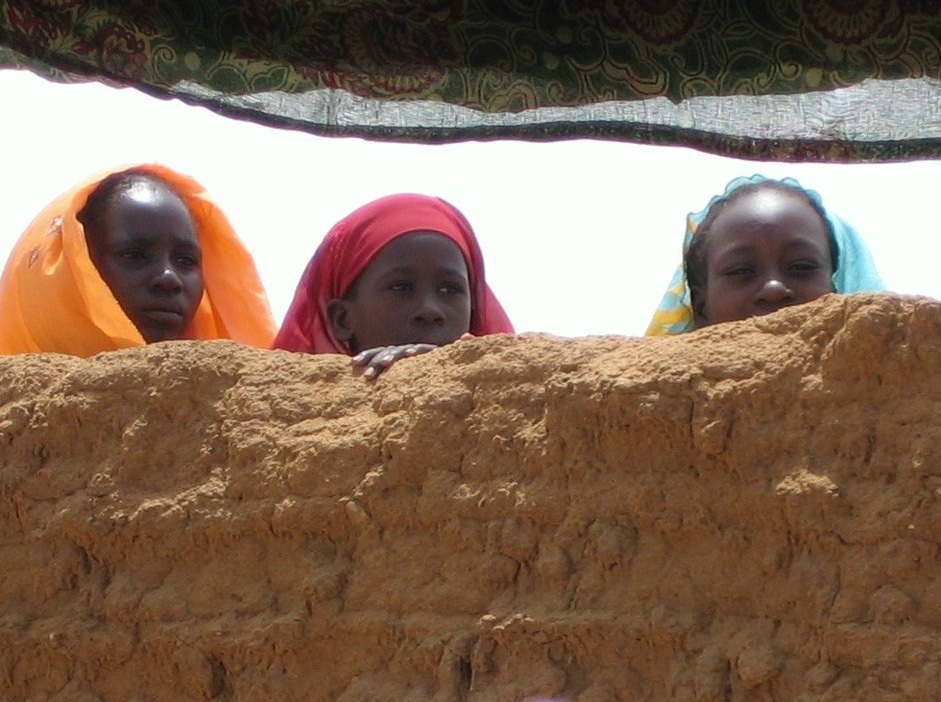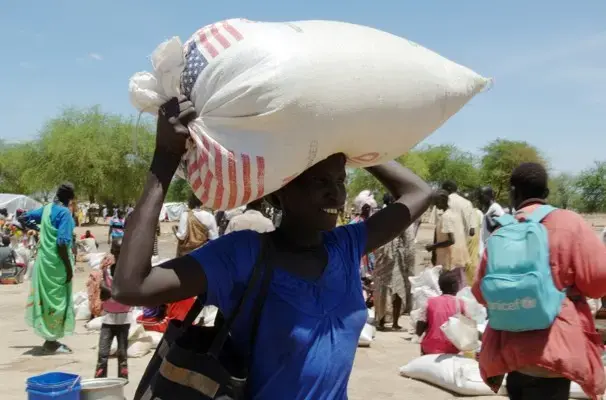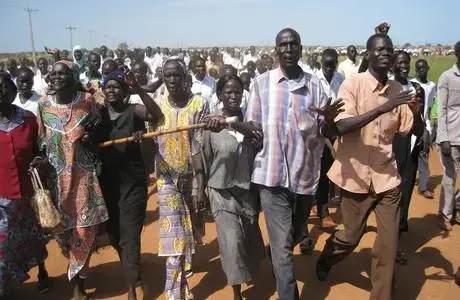Weeks before southern Sudan formally breaks from the north, the region is on edge. Harried government officials and army officers rush to meetings in the capital of the soon-to-be nation as rumors circulate that the north intends to occupy territory all along the border.
The fear stems from the Sudanese government's invasion of the contested border region of Abyei last week and seizure of the largest town in the area, also called Abyei.
"We are wondering, does this mean the end of our peace?" a driver asked as he waited for passengers near the university here.
Sudanese President Omar Hassan al-Bashir's decision to move on Abyei raises questions about his intentions just months after he publicly accepted the results of a referendum in which southern Sudanese voted to secede from the north. The fighting also complicates the Obama administration's strategy for Sudan, which involves pursuing incentives conditioned on the Sudanese government's commitment to peace.
The United Nations estimates that 30,000 civilians fled as the Sudanese armed forces bombed the Abyei area and shelled the town. In the days since, pro-northern militias have destroyed homes and ransacked stockpiles of food at a World Food Program warehouse. Witnesses say the rampage appears to have had the support of the Sudanese government, with trucks of the Sudanese armed forces waiting to collect stolen goods.
Bashir, who is wanted by the International Criminal Court for crimes in Sudan's western region of Darfur, was praised by world leaders in January after he accepted the south's decision to separate from Sudan. And the United States was on track to remove Sudan from the list of state sponsors of terrorism, which it has been on since it gave refuge to Osama bin Laden in the 1990s. But its removal is now in jeopardy, according to Princeton Lyman, the U.S. special envoy to Sudan.
Some say the Abyei attack is an effort by the Sudanese government to strengthen its hand in talks over how to share oil revenues and divide debt once Sudan splits on July 9.
"The Khartoum regime seeks to intimidate the government of southern Sudan and the international community into deeper compromises at the negotiating table," said John Prendergast, co-founder of the Enough project, an advocacy organization.
Others say Sudan's ruling National Congress Party is using the pretext of war to shore up support as it faces domestic pressure against its rule.
"Bashir can see Tunisia and Egypt and see the new winds of change blowing," said Fouad Hikmat, a Sudan expert at the International Crisis Group.
Analysts have long predicted that Abyei, a fertile area near several major oil fields, could trigger a resumption of a 22-year civil war between the Sudanese government in the mainly Arab and Muslim north of the country and rebels in the largely Christian and animist south.
During negotiations to end the conflict, the two sides could not agree whether Abyei should remain part of northern-administered Sudan or be transferred to the south. The parties ultimately agreed to let the people of Abyei decide in a referendum that was scheduled to take place simultaneously with the main South Sudan vote in January.
But the Abyei referendum never took place because of a dispute over who was eligible to vote. In recent months, northern and southern groups have engaged in attacks that have left an estimated 100 civilians dead.
In 2004, when the two sides agreed on the referendum, Abyei accounted for a quarter of all the oil produced in Sudan. But a court ruling has placed the most lucrative oil fields in the area outside of Abyei, and Abyei's one remaining oil field is in decline, according to Sudan's Oil Ministry. However, Abyei's relative decline in oil wealth has not made it any easier to resolve the region's future.
In 2008, the town was razed by a northern Sudanese brigade after a fight broke out between northern and southern soldiers. Experts say the area has acquired such symbolic significance that it is hard for either side to back down.
"Abyei has unfortunately assumed a political character and complexity far removed from the fundamental dispute on the ground," said Zach Vertin, a Sudan analyst at the International Crisis Group.
According to the Satellite Sentinel, a monitoring project spearheaded by actor George Clooney, satellite imagery shows that Sudanese armed forces with heavy armory and artillery "capable of imminent forward movement" may be preparing to advance on the south.
In Juba on Thursday, the South Sudan president, Salva Kiir, called on Bashir to withdraw his forces from Abyei. "We should not go back to such a sad story," he said.
Bashir has rejected such calls, maintaining that "Abyei is northern Sudanese land."










